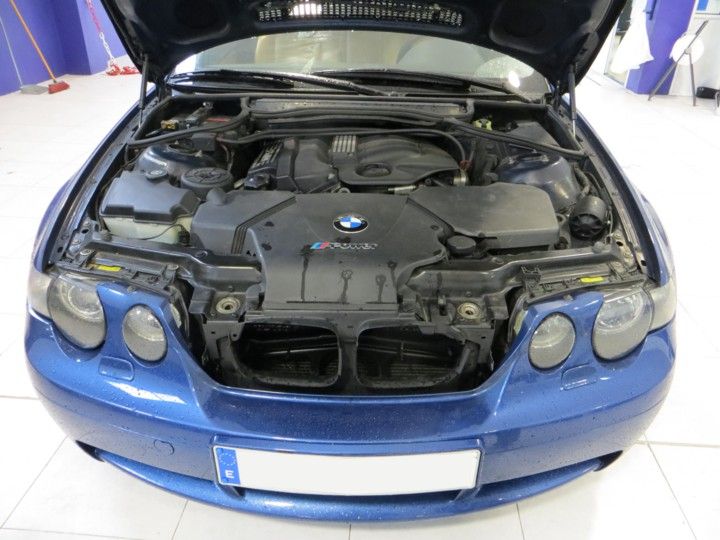Preserving Your BMW 318ti: Important Tips for Durability
Preserving Your BMW 318ti: Important Tips for Durability
Blog Article
Important Factors To Consider for Selecting the most effective Engine for Your Demands
In the world of choosing the optimal engine to satisfy your requirements, several critical elements demand meticulous factor to consider to make sure ideal performance and performance. From the nuanced balance between power and performance to the often-overlooked aspects of maintenance and service requirements, each element plays an essential function in figuring out the most ideal engine for your details demands.
Power and Performance
When assessing engines for optimal performance, it is important to focus on both power outcome and effectiveness. Power output measures the capacity of an engine to produce power, which straight influences its performance. A high power outcome is vital for requiring tasks such as heavy-duty applications or high-speed needs. It ensures that the engine can deal with the work efficiently and efficiently. Nevertheless, power alone is not enough; effectiveness plays a substantial function in figuring out the general efficiency of an engine. Effectiveness describes just how well the engine converts gas into functional power. A more effective engine will provide far better gas mileage, lower exhausts, and decreased operating expense. Striking the ideal equilibrium in between power output and efficiency is vital to choosing an engine that meets your details needs. When making this decision, it is essential to think about factors such as the intended usage of the engine, environmental impact, and lasting price effects. By meticulously examining both power and performance, you can choose an engine that delivers optimal performance and fulfills your needs successfully.
Fuel Performance and Economic Situation
In the world of engine option, the consideration of gas performance and economy holds paramount value. Fuel effectiveness refers to the engine's capacity to transform fuel into energy with minimal waste, straight influencing operating costs and environmental sustainability. bmw 318ti. When picking an engine, assessing its gas economic climate is important to establish long-term financial savings and ecological influence. Engines with higher gas performance not only reduce fuel expenditures however likewise lower carbon emissions, adding to a greener operation.

Compatibility and Application
Considering the gas effectiveness and economic climate of an engine, the following essential facet to address is its compatibility and Look At This application within certain operational contexts. Compatibility describes how well the engine incorporates with the total system or equipment it powers. It involves aspects such as physical dimensions, installing options, electrical interfaces, and control systems. Guaranteeing compatibility is important to avoid problems such as overheating, resonances, or power imbalances (bmw 318ti).
Different engines are made for details purposes, whether it be industrial machinery, aquatic vessels, autos, or power generators. Understanding the designated application permits for the selection of an engine that can provide the needed power output, torque, and functional features.
Upkeep and Service Demands
Upkeep and service needs play an essential duty in making sure the longevity and ideal performance of an engine. Regular maintenance is important to stop malfunctions, prolong the life expectancy of the engine, and keep its effectiveness. When selecting an engine, it is essential to take into consideration the supplier's recommended upkeep routine and the schedule of service centers or qualified specialists.
Factors such as the frequency of oil adjustments, filter replacements, and total assessments can click to read more dramatically impact the engine's performance. Some engines may need even more frequent maintenance based upon their design and use, while others might have longer periods in between upkeep checks. It is crucial to abide by these service demands to avoid expensive fixings and unanticipated downtime.

Price and Budget Factors To Consider
Budget restraints frequently play a considerable duty in the decision-making procedure when selecting an engine for a specific application. When thinking about the price and budget plan ramifications of choosing an engine, it is important to examine not just the first purchase cost however also the lasting costs connected with maintenance, fuel usage, and potential upgrades or fixings. It is crucial to strike an equilibrium in between the ahead of time expense of the engine and its total lifecycle expenses to guarantee that the selected engine remains economically lasting throughout its functional life-span.
Factors such as fuel dependability, longevity, and performance can straight affect the overall expense of possession of an engine. While a more pricey engine may have greater ahead of time costs, it can possibly result in lower upkeep and gas costs over time, therefore supplying better value in the long run.
Final Thought

Gas effectiveness refers to the engine's capability to convert fuel into energy with marginal waste, straight impacting operating expenses and ecological sustainability.Factors affecting gas performance consist of engine design, combustion effectiveness, and overall performance optimization. In addition, picking the ideal gas kind and grade as suggested by the engine manufacturer can further improve efficiency and lengthen engine lifespan.
Engines with good use features and readily offered parts can lower upkeep prices and minimize the time the engine weblink is out of operation - bmw 318ti. It is important to strike an equilibrium between the in advance cost of the engine and its overall lifecycle costs to guarantee that the selected engine remains monetarily sustainable throughout its functional life expectancy
Report this page